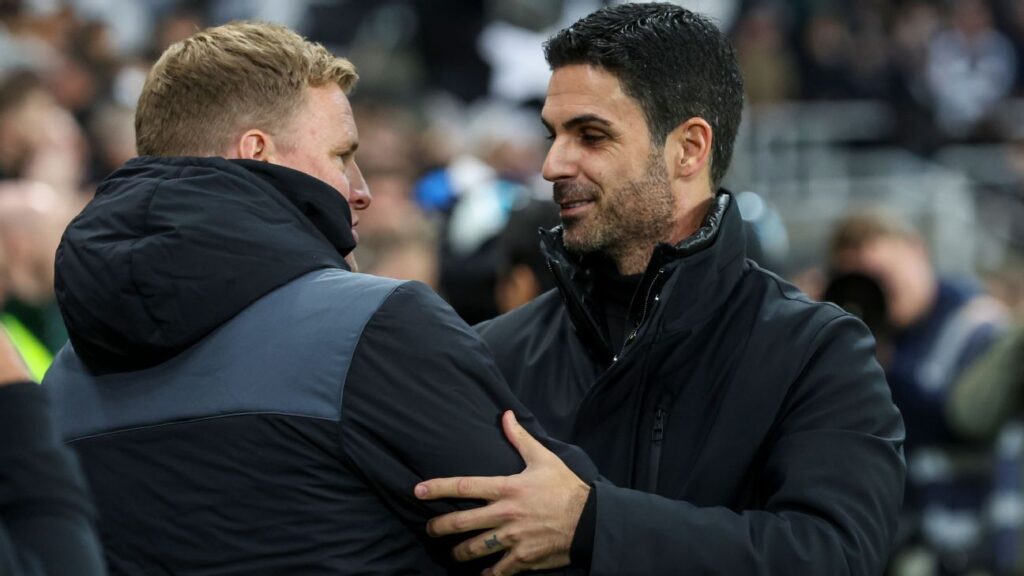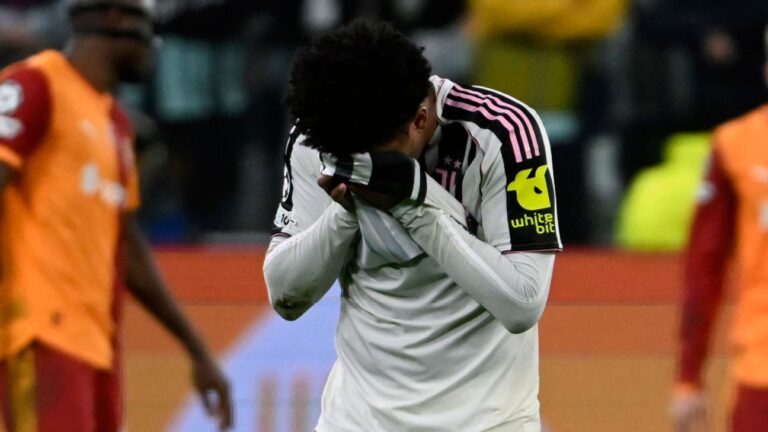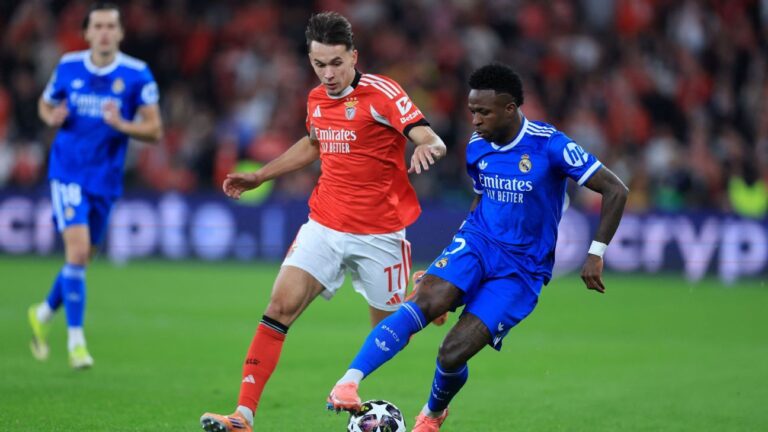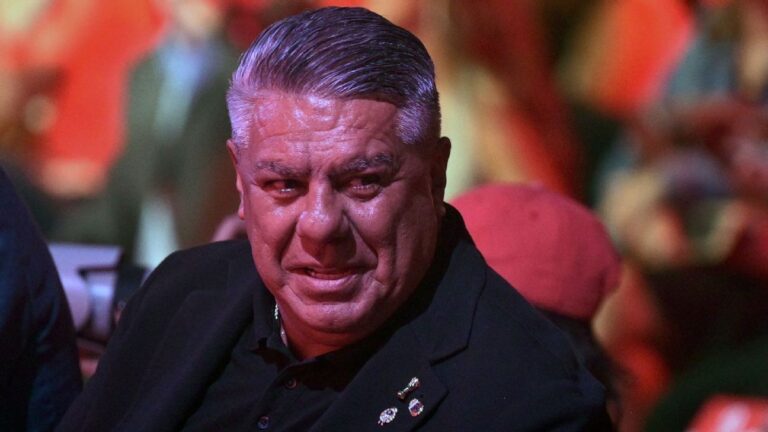The FA Cup returns this weekend (stream games live on ESPN+), which poses a question for the Premier League teams now involved in it: which manager needs to win the competition the most?
All 20 top-flight sides enter the competition at the third-round stage, and it comes at a moment when the Premier League is shaping up to be one of the most competitive in years. Just six points separate the top five clubs, and this proximity adds fresh emphasis to the debate about the importance of the world’s oldest domestic cup competition to its participants. Some managers are eyeing bigger prizes, others are eying a breather for key players. But some might need an FA Cup win to save their jobs.
Here, ESPN takes a look at eight of the top bosses and the conundrum facing them this weekend.
– Stream on ESPN+: LaLiga, Bundesliga & more (U.S.)
Guardiola’s principal fear this season is guarding against a drop in hunger or standards following Manchester City’s stunning treble success. The first competition they can now fail to defend is the FA Cup, although the draw has been kind in pitching them against Championship strugglers Huddersfield Town. Rotation is inevitable given the opponents and recent exertions at the FIFA Club World Cup, so Guardiola can probably wait until later in the month before having to ponder the importance of the FA Cup. Only an early exit would reinforce that some sort of complacency is creeping in.
In truth, Guardiola would no doubt happily sacrifice the FA Cup if it meant winning the Premier League and UEFA Champions League again. But such is the authority with which they played last season that they are surely favourites to win all three again. And the competition comes at a perfect moment for star midfielder Kevin De Bruyne, who seems certain to make his long-awaited return from injury after four months out with a hamstring injury.
Klopp knows better than most what fighting on four fronts can do to a team. Liverpool played 63 games in the 2021-22 season as they pursued an unprecedented quadruple, ending up with the domestic double of the FA Cup and Carabao Cup while falling short in the Premier League and losing the Champions League final to Real Madrid. Fatigue was an inevitable factor in the following season, as Liverpool finished fifth. It is this experience that may inform Klopp’s approach to the competition given they find themselves (somewhat unexpectedly) top of the Premier League after 20 matches.
Liverpool’s high-press, high-octane football is back, and it places high physical demands on his players. Rotation is almost inevitable, even in one of the toughest fixtures the third-round draw could have thrown up: away to Arsenal. The difficulty of Sunday’s game arguably allows Klopp to exit the competition without too much grief, not that he will be thinking that way of course. But the timing is difficult given this is also Liverpool’s first game without Mohamed Salah, who departed to represent Egypt at the Africa Cup of Nations, and Klopp’s ultimate aim for “Liverpool 2.0” is to win the league or conquer Europe.
The first half of the season suggests they are ahead of schedule and so the FA Cup could equally be viewed as a stepping stone on that journey or an unwanted obstacle.
Aston Villa haven’t won the FA Cup since 1957, but almost anything feels possible under Emery these days. Only Manchester City (93) collected more Premier League points in 2023 than Villa’s 85 and they find themselves in second place when FA Cup third round weekend arrives. Emery therefore has a decision to make: Does he rotate to protect a squad widely regarded as being ill-equipped to challenge for the title and maintain a UEFA Europa League push? Or target the most winnable trophy Villa have left available?
Saturday’s opponents are in a comparable position in one sense given Middlesbrough are focused on trying to secure promotion from the Championship, not to mention a Carabao Cup semifinal first-leg tie against Chelsea to come next Tuesday. There is an expectation that Villa will level off at some stage in the second half of the campaign — when many expect City to kick into gear — but perhaps Emery can deliver some of his cup magic to Villa Park.
He has won two Coupe de France titles, two Coupe de la Ligue titles, and two Trophée des Champions with Paris Saint-Germain and, of course, three successive Europa League titles with Sevilla. Regardless, he will want to avoid a repeat of last season’s early exit to then-League Two side Stevenage — such results can damage momentum.
A trip to bitter local rivals Sunderland is probably the last thing Howe needs right now. Newcastle have shown signs of fatigue as an injury-depleted squad has struggled to cope with the demands of combining a Premier League top-four push with six games in the Champions League group stage.
If including their Carabao Cup quarterfinal penalty shootout defeat at Chelsea last month, they have lost seven of their last eight games in all competitions to place Howe under the most scrutiny he has faced since being appointed in November 2021. That will go up a level should they lose at Sunderland, who are sixth in the Championship and keen to bring their Saudi-backed neighbours down to Earth.
For all Newcastle’s progress, their wait for a trophy goes on. Although they won the Championship in 2017, the last major honour came with victory in the 1955 FA Cup final. Expectations have increased — a credit to the work Howe has done — but exiting the FA Cup would leave them facing yet another trophyless season and an increasingly uphill struggle to get back into the top four. Howe surely has to rest one or two players given they face City next weekend before a two-week break.
Arsenal’s success in the 2020 FA Cup final against Chelsea was the platform upon which Arteta earned the authority to reshape the Gunners into the Premier League title challengers they are today. As a result, the Spaniard is now targeting bigger prizes than this competition given they are within striking distance of leaders Liverpool and have an inviting Champions League round-of-16 tie against Porto next month.
Arteta has transformed Arsenal during his four years in charge to the extent that winning silverware is fast becoming an expectation rather than a pipe dream. But it could be argued there remains a gap between the level required to fulfill their aspiration of lifting the Champions League or Premier League and the actual ability of this team at present, one which could be filled by an FA Cup triumph as they continue to evolve. There are questions over whether they possess the squad depth to pursue all three trophies and an early test will come in Sunday’s third-round tie against Liverpool, when Arteta may rotate one or two players after a difficult festive period.
Perhaps the only misstep of Postecoglou’s Tottenham reign to date was his willingness to risk an upset in the Carabao Cup by making nine changes for their second-round tie at Fulham. Spurs lost at Craven Cottage on penalties, provoking a backlash among supporters frustrated that arguably their best chance of a first trophy since 2008 had been compromised by fielding such a dramatically altered team. It stands as a mere footnote now, however, given that Postecoglou has guided Tottenham to within a point of the Premier League’s top four, five behind leaders Liverpool, with an attacking brand of football that has enthralled everyone.
But Spurs still have that itch to scratch. What an achievement it would be if a season that began with the loss of their talismanic centre-forward and one of the best strikers England has ever produced — Harry Kane — ended with a first trophy in 16 years at Wembley?
There is an acknowledgment at Stamford Bridge that this was always going to be a season of transition given the unprecedented level of investment (over £1 billion in three transfer windows) and turnover of players since the Todd Boehly-Clearlake Capital takeover of May 2022. Pochettino consequently won’t be solely judged on Premier League performance but even allowing him leeway arising from all the change, the Blues never expected to sit 10th after 20 matches.
They are 12 points off the top four, and while Champions League qualification would be their principal aim, winning the FA Cup would offer a similar validation to that enjoyed by Arteta four years earlier. It is especially relevant for a manager whose lack of silverware was the only thing missing from 5½ years of progress at Tottenham. Although Pochettino won the Coupe de France and a Ligue 1 title with PSG, his ability to deliver trophies is still questioned by some, so winning the FA Cup would be a notable achievement — one which would also represent the sort of shared experience that could bind his expensively assembled squad together.
Pochettino’s job is not in any imminent danger, but a cup run would also help offset any continuing disappointment in the league. A home tie against Preston North End — 14th in the Championship — is an inviting place to start.
Manchester United’s systemic problems cannot be fixed by the FA Cup. But if Ten Hag is battling to prove he should remain as manager when Jim Ratcliffe’s Ineos begin their overhaul of the club’s football operations, then United’s first FA Cup triumph since 2016 would strengthen his argument. This season has proved that United in their current guise are once again incapable of delivering the consistency required to sustain a title push and recent defeats at West Ham and Nottingham Forest have left them nine points adrift of the top four.
They will need to improve their league form to quiet Ten Hag’s critics, but the FA Cup can potentially offer some welcome respite, just as the EFL Cup win augmented last season’s third-place finish. The flip side is damaging. Lose at League One strugglers Wigan Athletic on Monday night, and the crisis at Old Trafford will deepen further.




